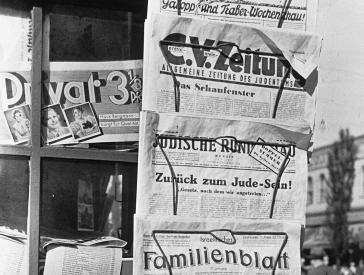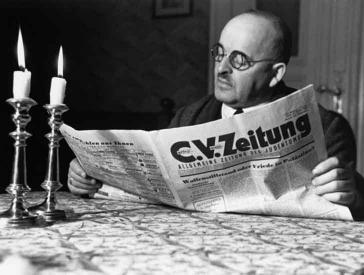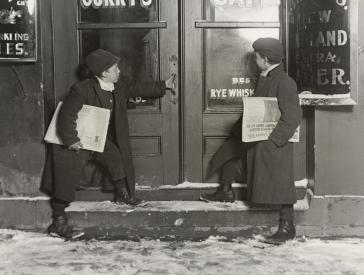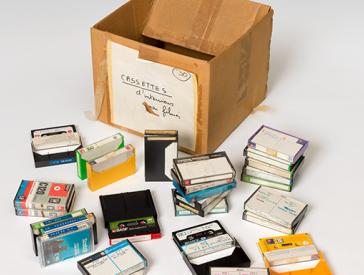UNESCO World Heritage listing for Claude Lanzmann’s audio archive at the Jewish Museum Berlin
Press Release, Thu 18 May 2023
Starting today, the Jewish Museum Berlin (JMB) can say that it is home to a piece of UNESCO World Heritage: Claude Lanzmann’s audio archive for his film Shoah (France, 1985). The archive, along with the original 16mm and the restored 35mm film footage, was today inscribed into the UNESCO register of the world’s documentary heritage, “Memory of the World.” The films are owned by the French company Les Films ALEPH. Dominique Lanzmann is the company’s managing partner and president of the Claude and Felix Lanzmann Association (A.C.F.L.). The international accolade highlights the universal value and significance of the films and audio cassettes.
- Kontakt
-
Dr. Margret Karsch
Press Officer
T +49 (0)30 259 93 419
presse@jmberlin.de
- Address
Jewish Museum Berlin Foundation
Lindenstraße 9–14
10969 Berlin
The audio archive consists of audio recordings made by the journalist and documentary filmmaker Claude Lanzmann (1925–2018), the grandson of Jewish immigrants from Eastern Europe, along with two of his colleagues, while they were researching Shoah in the three years before filming began. The tapes document conversations with very different contemporary eyewitnesses: survivors of the ghettos and concentration camps, resistance fighters, historians, clerics, intellectuals, politicians, and perpetrators.
The audio archive was donated to the JMB in late 2021 by Dominique Lanzmann. The recordings are stored on ordinary music cassettes. Upon receiving the gift, the JMB began digitizing the 200 hours of recordings in order to preserve them and make them accessible for the future.
Hetty Berg, Director of the JMB, comments on the donation and the accolade: “With this distinction, the JMB has for the first time become home to UNESCO-recognized world cultural heritage. Being able to preserve this extensive, as yet unpublished audio archive – created in the context of Lanzmann’s monumental cinematic work Shoah – here in Berlin is both a great privilege and a special obligation. For the past year, the audio recordings have enriched our collection with their unique perspective: Lanzmann’s documentary took an entirely new artistic approach and laid the methodological groundwork for oral history. The UNESCO distinction motivates us even more than before to explore the content of these holdings, open them up for research, and make them accessible online.”
The Alfred Landecker Foundation, one of whose goals is to promote contemporary ways of remembering the Holocaust, intends to make a substantial financial contribution to help digitize, analyze, and publicize the archive.
The film Shoah was a watershed in perceptions of the Holocaust. Without seeming to lecture, the film is an instructive work supplying verified historical information, which it has anchored in the memory of an audience across the world. Lanzmann worked on the documentary for twelve years. Nine hours and 26 minutes long, it does not include a single archival image. Lanzmann’s interviewing method in Shoah played an important part in the development of oral history as a discipline. He lets the eyewitnesses speak freely and choose the focus of their narrative themselves. As a result, the premiere of Shoah was not only a great cinematic event, but also a historical milestone. The fact that the last witnesses to the Holocaust will soon have passed away further intensifies the great significance of the research and audio documentation that Lanzmann carried out.
The documents in UNESCO’s Memory of the World Register mark cultural turning points in history and are a source of knowledge that can help to shape present-day and future societies. Examples include the Gutenberg Bible at Göttingen, the Warsaw Ghetto Archives, and the colonial archives of Benin, Senegal, and Tanzania. Ever since 1992, the UNESCO program on the memory of humanity has worked to preserve these extraordinarily valuable documents in archives, libraries, and museums, make them accessible, and enhance awareness of their importance. Germany now has twenty-five inscriptions in the Register.
Press Images for current news reporting, provided the copyright details are included
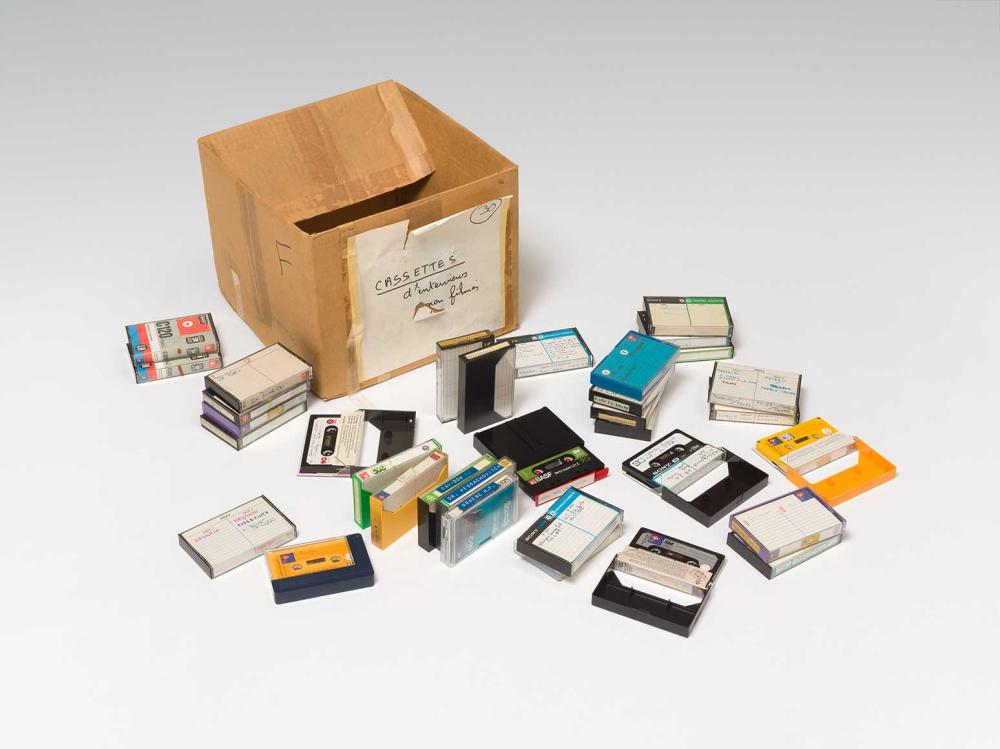
Claude Lanzmanns audio archive, Jewish Museum Berlin, photo: Roman März
Download (ZIP / 473.54 KB)

